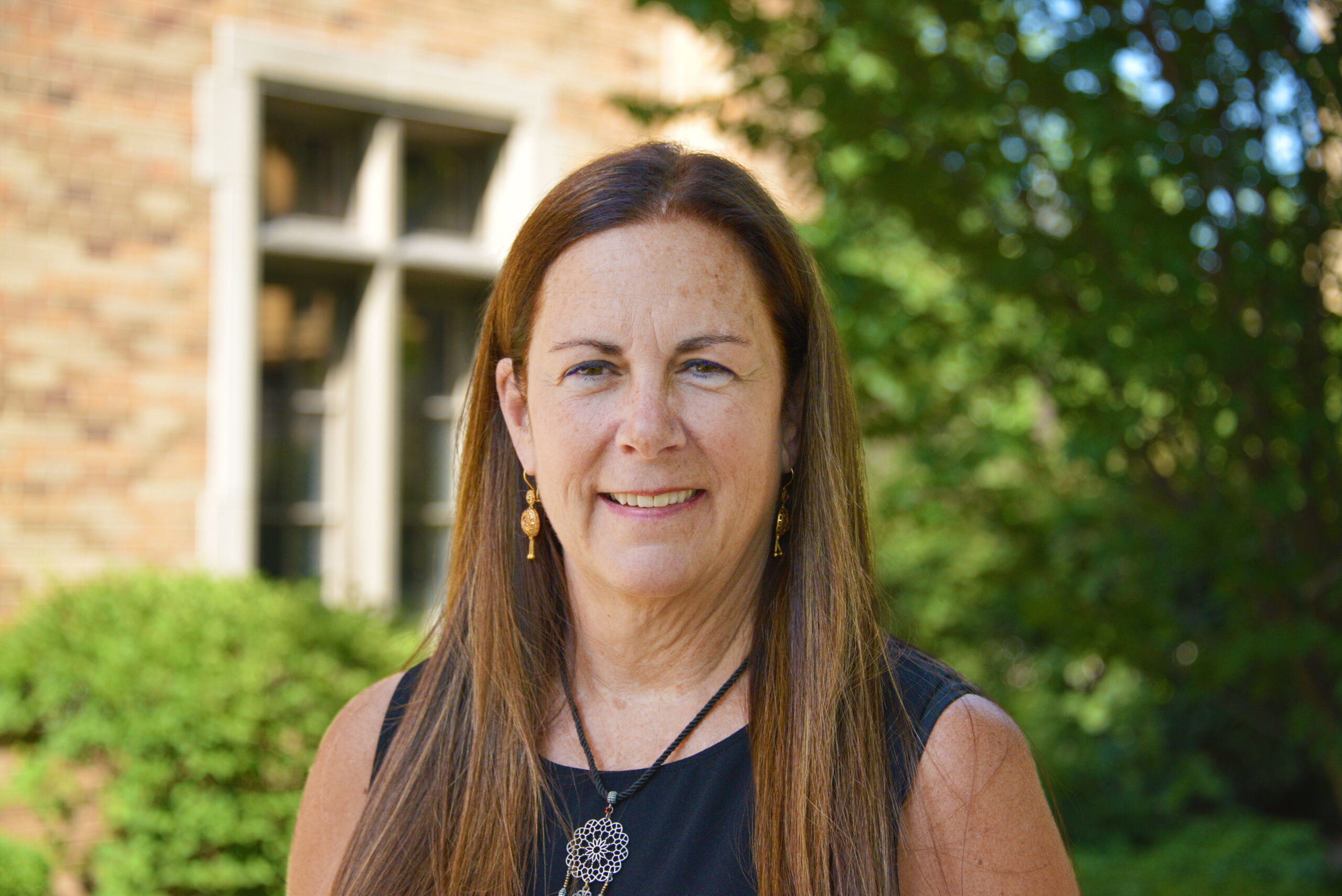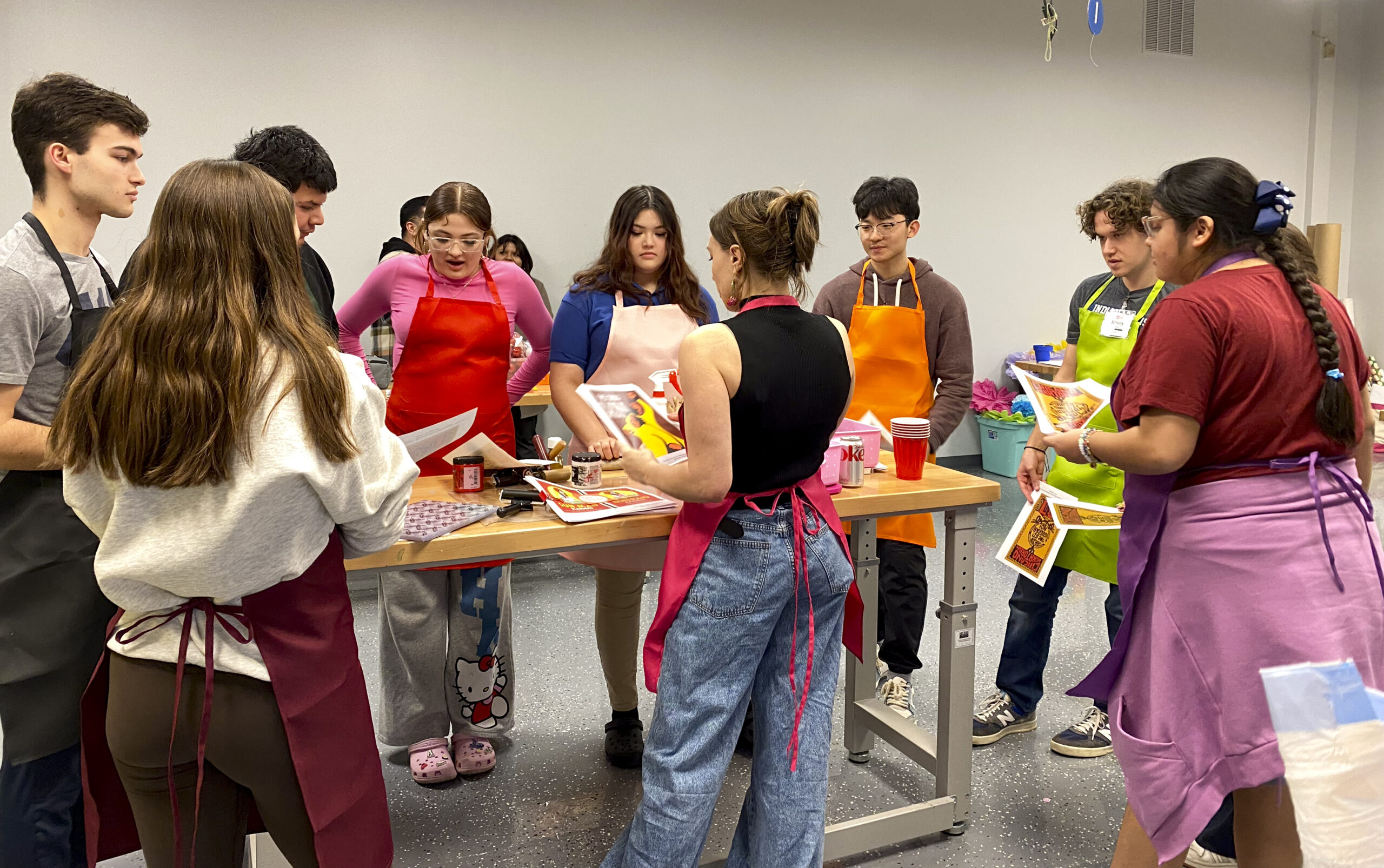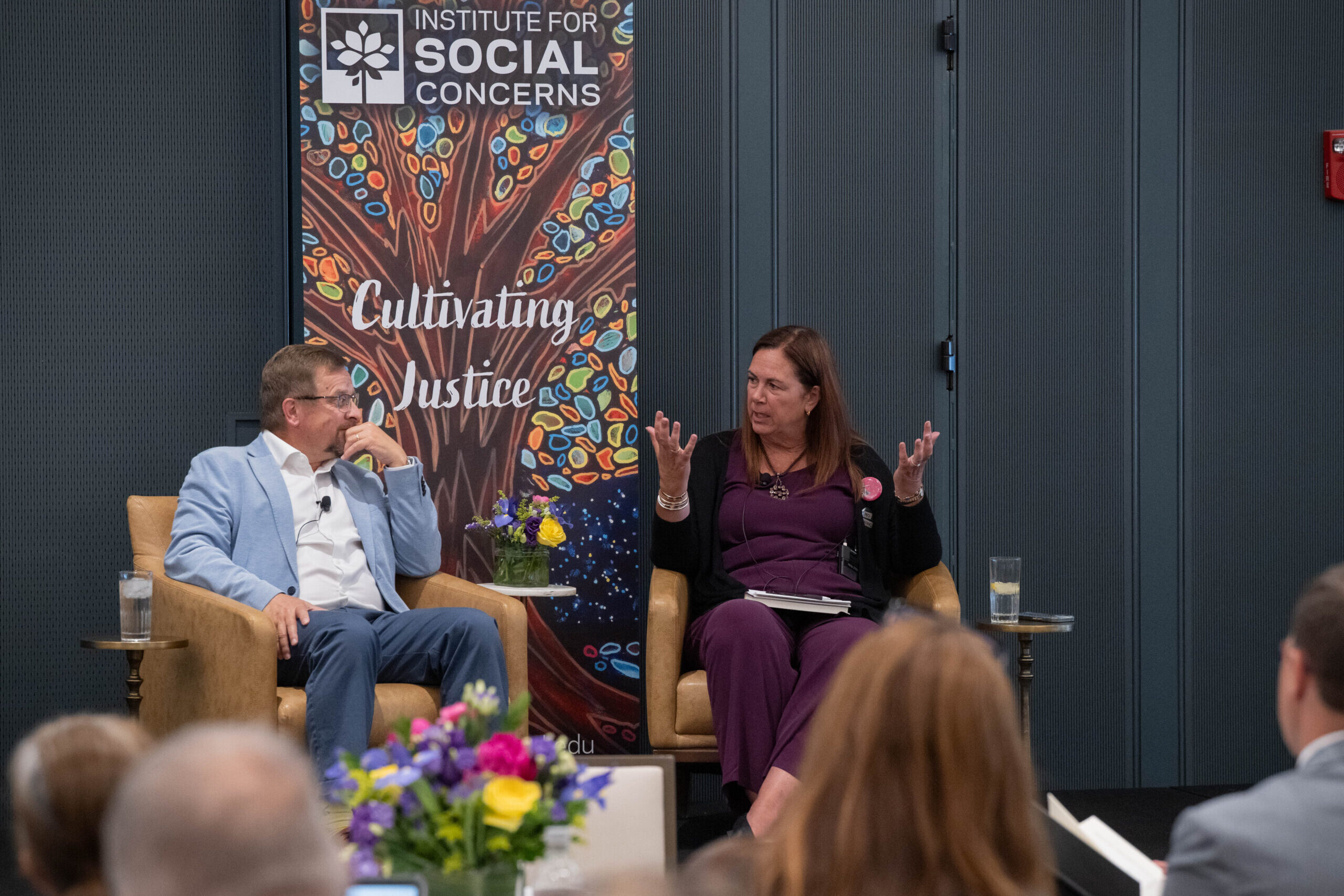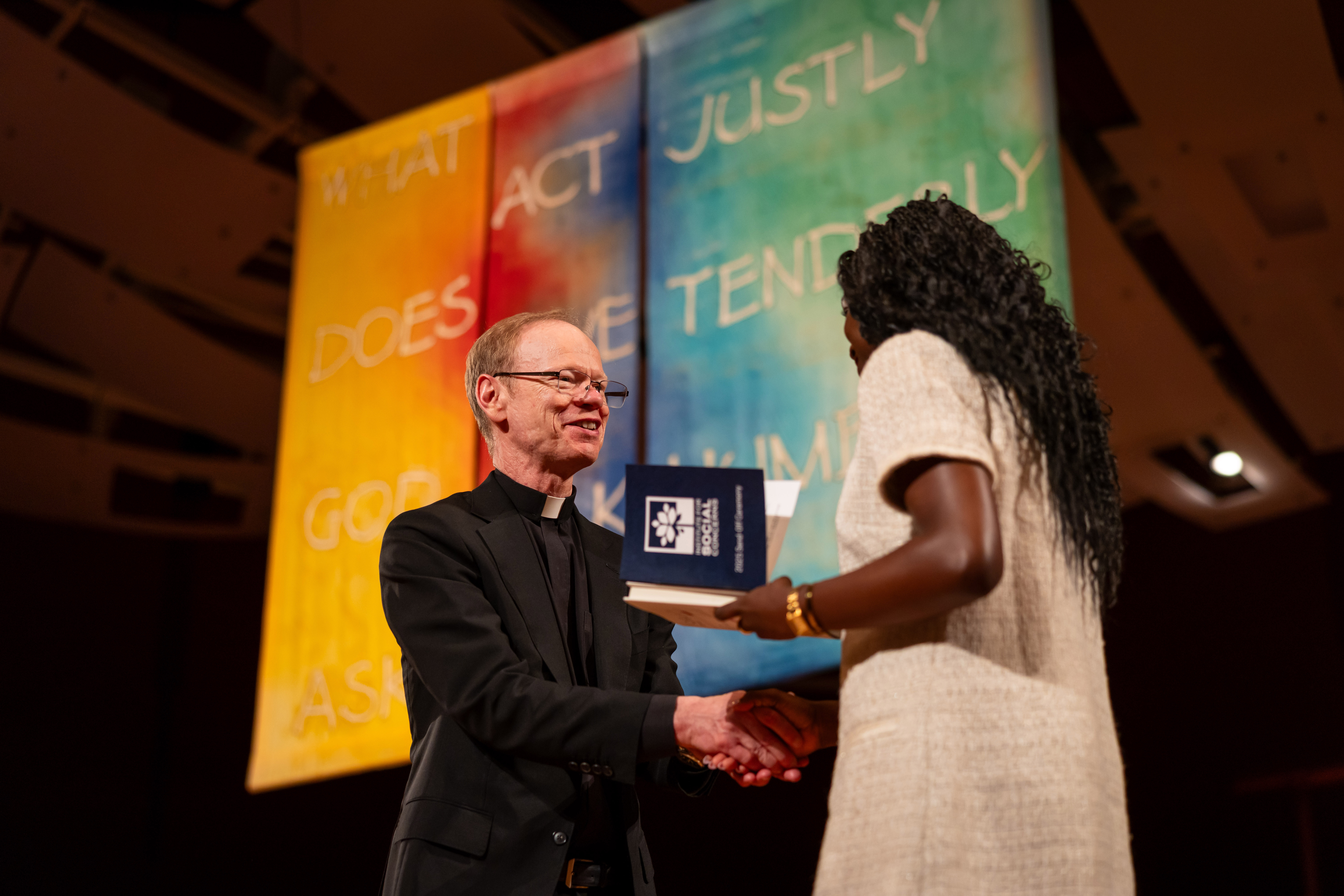Good tech, bad tech, and cultivating virtue in engineering
October 24, 2023
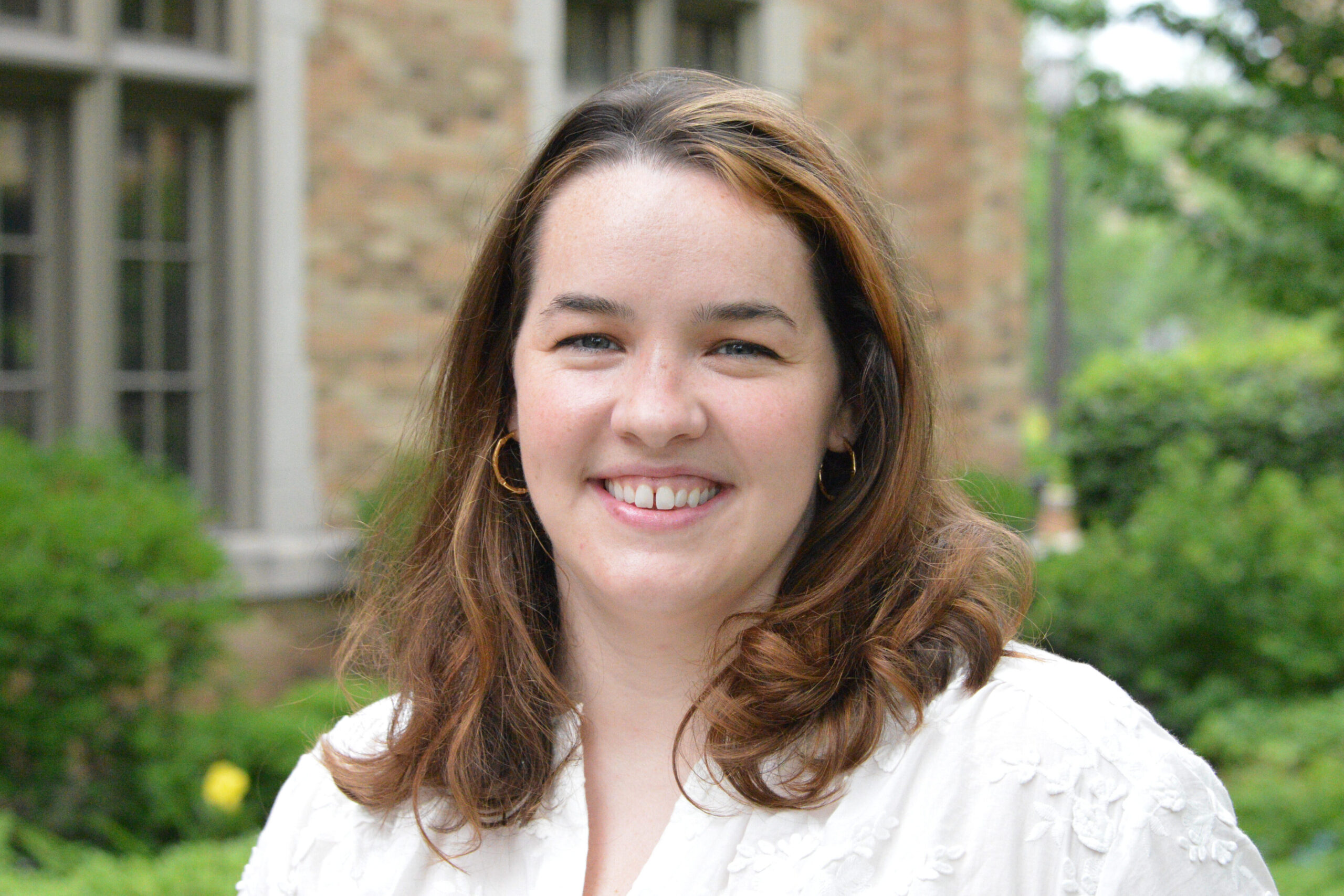
Megan Levis entered college knowing that she either wanted to be a philosopher or an engineer.
She ended up choosing the latter, and went on to earn her Ph.D. in bioengineering from Notre Dame. But she hasn’t left philosophy behind. In fact, her two passions have dovetailed as a faculty member at the Institute for Social Concerns.
“This is literally my dream job,” she said.
Levis joined the center this fall as an assistant professor of the practice with a joint appointment in the College of Engineering. Her research is focused on questions about how technology influences our shared understanding of what it means to be human, how digital spaces can be designed to encourage virtuous habits, and how to shape engineering curricula to build character alongside core engineering skills and competencies.
“Something that really drew me to engineering was that I wanted to be able to solve problems for people,” she said. “I see engineering as an inherently social endeavor. With science, you’re looking to understand how the world works. With engineering, you’re taking the understanding of science and applying it to specific problems.”
And with application comes social impact. Most technologies have multiple uses, Levis noted, and therefore the capacity to be used in negative ways or to spawn unintended consequences.
“That’s what brought me to the Institute for Social Concerns,” she said. “We as researchers have to be thinking about how technologies are deployed and the multiple uses of the technology that we’re developing. We have a lot of good people developing tech, but I think we should have more tech developers who are thinking about social impact.”
To address questions about technology and the common good, Levis has collaborated with scholars in philosophy and other fields.
In some ways, her interdisciplinary approach grew out of a book club that she formed in grad school with two friends — one was a mathematician, the other a Dominican priest pursuing a doctorate in political science.
They read classics by Walker Percy, Simone de Beauvoir, Flannery O’Connor, Marilynne Robinson, and other authors. Then, over classic cocktails, they discussed life’s big questions and the different viewpoints that came with their respective academic backgrounds.
“One of the things I love about literature is that it allows us to engage with human questions in ways where we don’t have our preformed opinions,” she said. “In my engineering classes now, I bring in literature because I think it’s a powerful tool for shaping our imagination, which is at the heart of moral thinking.”
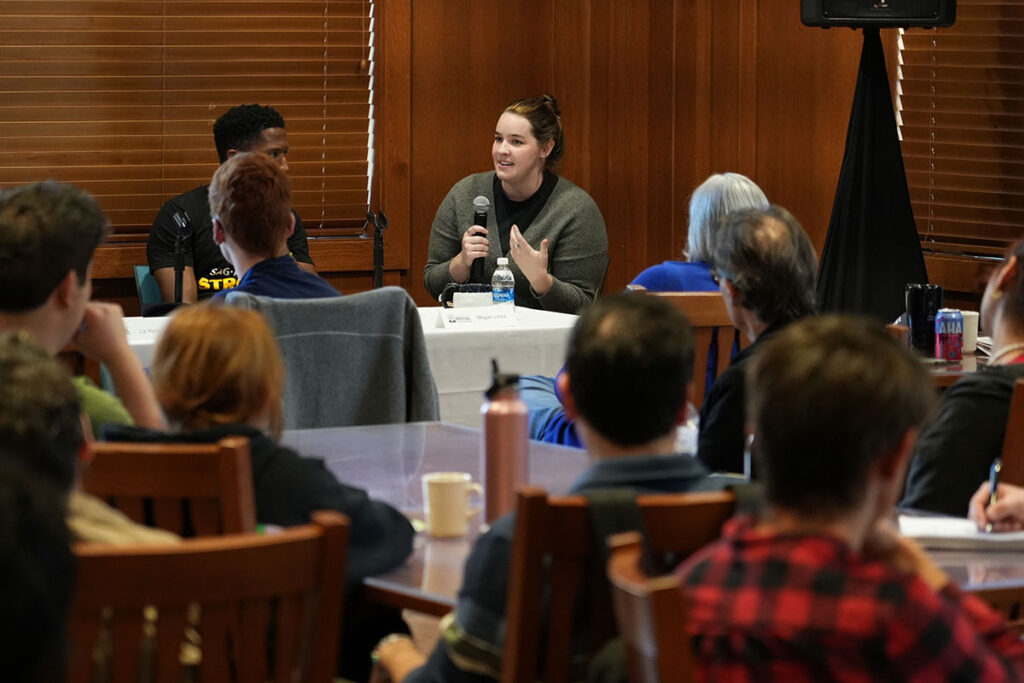
Levis has found that her students are hungry for discussions around character, building virtuous habits, and how they can serve the common good through engineering.
“I’ve been teaching in the first-year engineering program since 2019, so I’ve had a lot of conversations with students about their careers and what they want to do with their lives,” she said. “The phrase that comes up frequently is that they want to ‘engineer for good in the world.’ That comes up all the time.”
Those conversations with students — and the recognition that other faculty members across the College of Engineering were having similar conversations — led Levis to start a working group to integrate virtue into the engineering curriculum. The goal is to build out a set of resources that faculty can use in their classes to discuss virtues that are relevant to engineering topics. Levis said the group hopes to create a website with externally facing documents, examples of slides, and language for syllabi with the idea that students will see those messages at least a few times per semester throughout their four years at Notre Dame.
“I see this working group as connecting what we do in the classroom in the College of Engineering to Notre Dame’s mission,” she said. “This is giving students a set of habits that they can develop to better align themselves with the University’s mission to be a force for good in the world.”
Virtues & Vocations, a national forum housed at the Institute for Social Concerns that helps scholars and practitioners across disciplines cultivate character in pre-professional and professional education, has been invaluable in providing a framework for the College of Engineering project, Levis said.
The Institute for Social Concerns’ foundation in the principles of Catholic social teaching has been valuable for Levis’s research, too.
“The Catholic Church has this particular way of looking at the human person and holding that up as something that’s really important. That was what led me to Catholic social teaching,” she said. “I realized that if I wanted to answer some of these ethical questions, I needed to dig into this deep philosophical and theological tradition.”
Levis is currently working on a book, Virtue in Virtual Spaces: Catholic Social Teaching and Technology, with Walter Scheirer, the Dennis O. Doughty Collegiate Associate Professor in the Department of Computer Science and Engineering, and Louisa Conwill, a Ph.D. student in computer science and engineering. The book draws on virtue ethics and Catholic social teaching to demonstrate the potential goodness of technology, and uses eight of the main themes of Catholic social teaching to provide a structure for using and designing technology to promote human flourishing.
“Notre Dame is the place to ask these questions,” Levis said. “I don’t know if there’s anywhere else in the world where I could think really deeply about the engineering work that I’m doing, but also think really deeply about whether we are actually building technologies that encourage virtue and encourage this holistic view of the human person.”
Visit Megan Levis’s website for her seminar course, Technology, Self & Society.
Related Stories
-
Bringing a just peace to Ukraine—Shanahan co-leads new project with Ukrainian Catholic University
-
Summer of Social Concerns—students engage in justice research around the globe
-
Printmaking history—the institute partners with community to celebrate South Bend’s Latino heritage
-
Forming character through friendship—Virtues & Vocations conference promotes human flourishing in professional education
-
Go be justice—Sending off graduates to work for the common good

